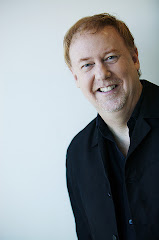ABOUT SONGS AND THEOLOGY
There is an argument that bubbles on about worship songs and theology. This is nothing new, it has pretty much always been happening. Sometimes you hear it as an argument in support of old hymns as opposed to contemporary songs. Other times it will be about the various movements in contemporary worship music.
I remember years ago there was a song that we sang very regularly, and I had a theological problem with every line in it, right up until halfway through the second verse. As I moaned about this to the Lord one day, I felt the Lord say to me “Yes, but don’t miss the point”. The point was this; people were worshiping and having hearts changed by God. I humbled myself and entered in, and was blessed.
“Theology” can so easily become the refuge of the argumentative, bitter, insecure or reactionary person. It can be a mine field when it is misused in this way, equal to the dangers of having wrong theology. Jesus Himself used simple stories to explain aspects of the Kingdom of God. He used analogies that, if pushed beyond His intention, ultimately would break down. For example, John 15 doesn’t imply that God has an actual vineyard and spends His days doing the gardening. It is just an analogy that explains one aspect of God and the Kingdom. We are meant to understand it, live it, and then keep going.
Even the hymn writers of old had strong theological disagreements. The great Charles Wesley was broadly Arminian in theology, and was sharply at odds with many of his Godly contemporaries, including friend and great preacher, George Whitfield. The wonderful hymn Amazing Grace could be regarded as an incomplete theological statement by some.
There is an element of choice about this. If you are looking for that which is good, you will see good. If you are looking for that which is wrong, you will see that instead. Philippians 4:8 makes it very plain what we should be doing. Look for things that are true, noble, right, pure, lovely, admirable, excellent and praiseworthy. If a person is constantly seeing something other than these, I suspect they are looking for the wrong things.
Here are a few summarised thoughts about the issue of theology and worship.
1 Strong theology can be embodied in a few simple words.
2 Praise and worship is not intended to be the source of your theology. Don’t look to praise and worship music to balance every argument.
3 Theologians disagree with each other constantly about almost everything, including song lyrics. Argument is normal in those circles. In true worship, a spirit of agreement is “normal”. Arguments are very out of place in worship.
4 You can make any number of contradictory conclusions about the lyrics of a song. Just as there are various interpretations of Bible verses, there can certainly be various interpretations of song lyrics. Choose an interpretation you agree with and go with it. Give the writer some credit for being intelligent and spiritual.
5 Just because you can’t understand all of something doesn’t mean it’s not true. Just like a crossword puzzle, the fact that you can’t supply the answer to a particular clue doesn’t mean the whole crossword itself is wrong or incomplete. The problem is simply that you don’t know everything. (If you think you do, you may be officially in trouble.) Love the truth you know.
6 Praise and worship is not primarily about you, but God. If your heart is healthy and in the right place all the arguments start to look self-serving and small-minded.
7 If you look for fault, you will find fault. If you look for blessing, you will find blessing. Determine that in worship you will be a blessing to the Lord.
8 To the song writers; be men and women of the Word. Write truth fearlessly. Truth is a biblical word where theology is mostly a human construct that began in ancient philosophy.
Write truth, for it heals, brings faith, holds a mirror to the human condition and opens a window to heaven. Be shameless about the truth, and don’t shrink back.
Tuesday, September 22, 2009
Subscribe to:
Post Comments (Atom)






No comments:
Post a Comment